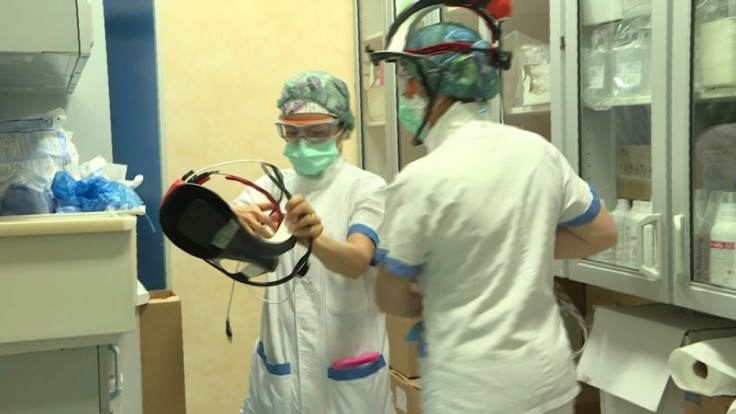Virus pandemic also takes its toll on mental health of healthcare workers, experts worry
These have been observed by researchers in doctors, nurses, emergency responders, law enforcement, and others who have faced the crisis head-on.
Aside from the devastating impact COVID-19 has on an individual's physical wellbeing, many people have reported its psychological effects as well. With governments enforcing lockdowns, the highly contagious nature of SARS-CoV-2, and lack of effective treatments or a vaccine for the disease, experts are observing increasing cases of anxiety, depression, and similar disorders. Now, it seems that surging cases are once again overwhelming healthcare workers which is apparently affecting them both physically and mentally.
These have been observed by researchers in doctors, nurses, emergency responders, law enforcement, and others who have faced the crisis head-on with some eventually infected. "Health care professionals are used to providing care," stated Mount Sinai National Jewish Health Respiratory Institute licensed social worker Rachel Potter. "I think there is a sense of helplessness in being in the role of the patient during this pandemic, especially when we're still figuring out how to treat COVID."
According to a report from Fox News, a physician recovering from COVID-19 who requested to stay anonymous explained: "I get these sudden flashbacks and feel these pangs of uneasiness, especially if I turn suddenly onto my stomach when laying down. It brings me back to when I was in the hospital and I had to be in a prone position to help me breathe." Given that there are nuances yet to be discovered, even experts are unsure if their approach will be beneficial to the patient or not.
Meanwhile, according to an article published by the American Psychological Association in July, the majority of people who survived the disease complain about sleep difficulties, brain fog, and fatigue among others. This supposedly makes healthcare workers who have returned to their posts worry that they will be unable to function properly to make the right decisions to save their patients.

Those who have been diagnosed with post-traumatic stress disorders from their time in the ICU or hospital beds will likely experience distress when they see their patients who are showing similar symptoms. There are a lot of things to consider amid the coronavirus crisis as biotech companies struggle to rush the development of medications and vaccines that will hopefully be effective against the COVID-19.
© Copyright IBTimes 2025. All rights reserved.





















